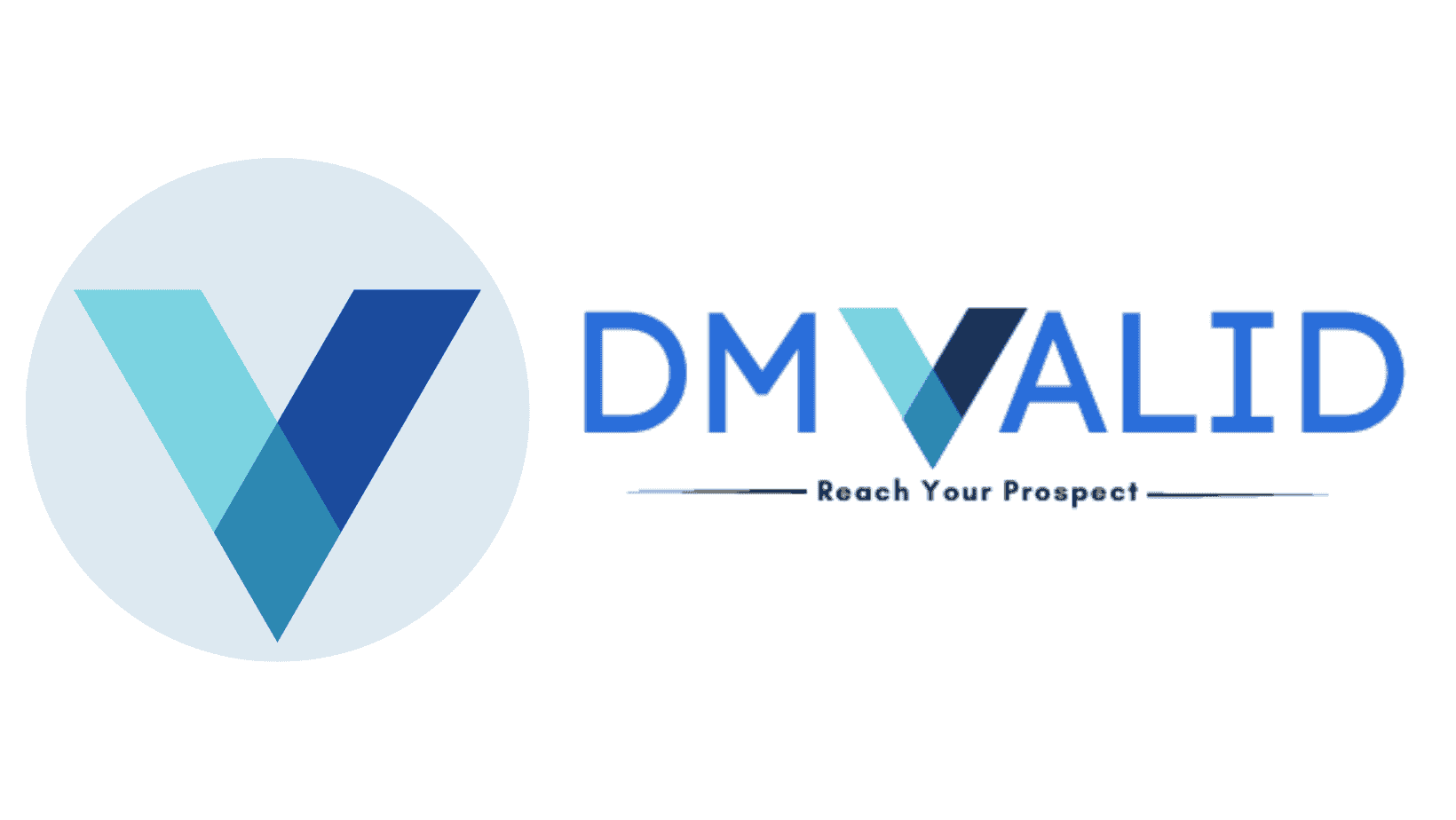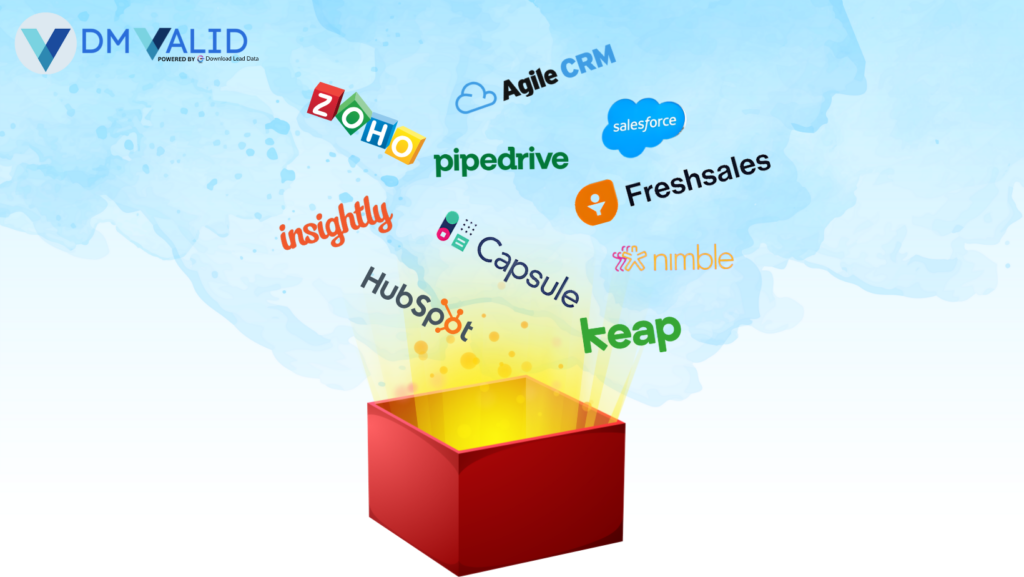As a small business owner, keeping your customers happy is key to your success. A Customer Relationship Management (CRM) system can help you manage your sales, marketing, and customer service more effectively, leading to happier customers and more revenue.
In 2024, there are more CRM options than ever, each offering different features to meet the needs of small businesses. To help you choose the right one, we’ve put together a list of the 10 best CRM software options for small businesses in 2024.
Table of Contents
What is CRM Software?
CRM (Customer Relationship Management) software is a tool that helps businesses manage their interactions with current and potential customers. It centralizes customer information, tracks communication history, and automates various processes like sales, marketing, and customer service. This helps businesses build stronger relationships, improve customer satisfaction, and boost sales by ensuring that every interaction is well-organized and personalized.
Why Your Small Business Needs CRM Software
- Better Organization: CRM software helps you keep all your customer information in one place, making it easy to track interactions, manage contacts, and stay organized.
- Improved Customer Relationships: By tracking customer interactions and preferences, CRM software allows you to personalize your communication, leading to stronger relationships and higher customer satisfaction.
- Increased Efficiency: Automating tasks like follow-ups, email marketing, and reporting saves time and reduces errors, allowing you to focus on growing your business.
- Enhanced Sales Management: CRM software helps you track leads, monitor sales progress, and identify opportunities, making your sales process more effective.
- Data-Driven Decisions: With detailed analytics and reporting, CRM software provides insights into customer behavior and business performance, helping you make informed decisions.
10 Best CRM Software for Small Businesses in 2024
HubSpot CRM
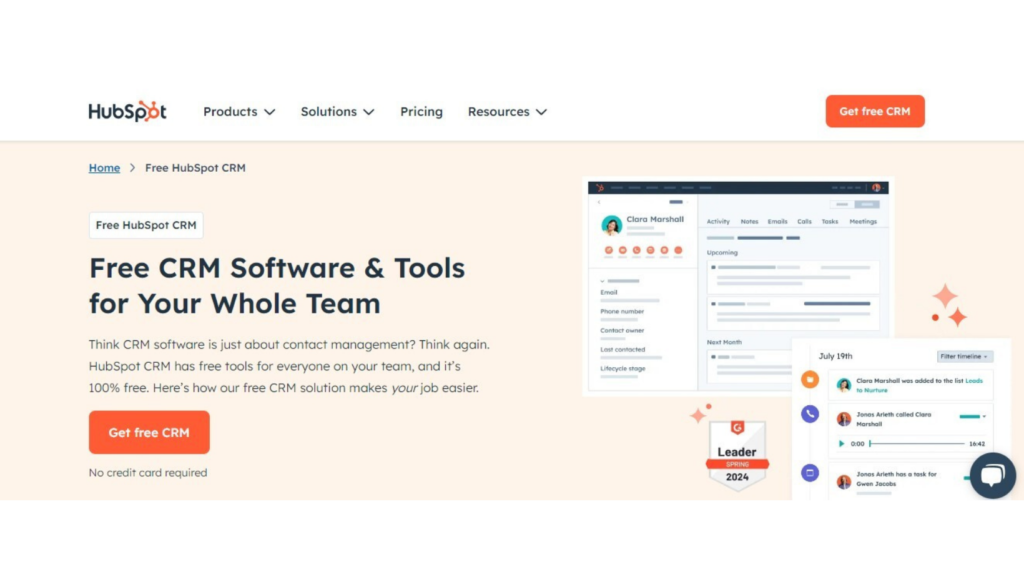
HubSpot CRM is a popular customer relationship management software designed to help businesses manage their sales, marketing, and customer service operations efficiently. It offers a comprehensive suite of tools to streamline various aspects of customer interactions and business processes.
Key Features:
- Contact management
- Email marketing
- Sales pipeline management
- Reporting dashboard
- Integration with over 500 tools
Pros:
- Free Version: HubSpot CRM offers a robust free plan with essential features, making it accessible to small businesses.
- User-Friendly Interface: The platform is intuitive and easy to navigate, which is great for businesses new to CRM systems.
- Strong Marketing Tools: HubSpot is known for its marketing capabilities, including email campaigns, landing pages, and forms.
Cons:
- Limited Customization: While easy to use, HubSpot CRM has some limitations in customization, especially in the free version.
- Costly Upgrades: As your business grows and requires more advanced features, the paid plans can become expensive.
- Limited Reporting in Free Plan: Advanced reporting and analytics are only available in higher-tier plans.
Example:
A small marketing agency uses HubSpot CRM to manage client contacts, send out email newsletters, track sales opportunities, and analyze marketing performance—all from one platform.
Pricing:
- Free Plan: Includes basic CRM features with unlimited users.
- Paid Plans: Start at $50/month, with additional features like advanced reporting, automation, and more extensive integrations.
Zoho CRM
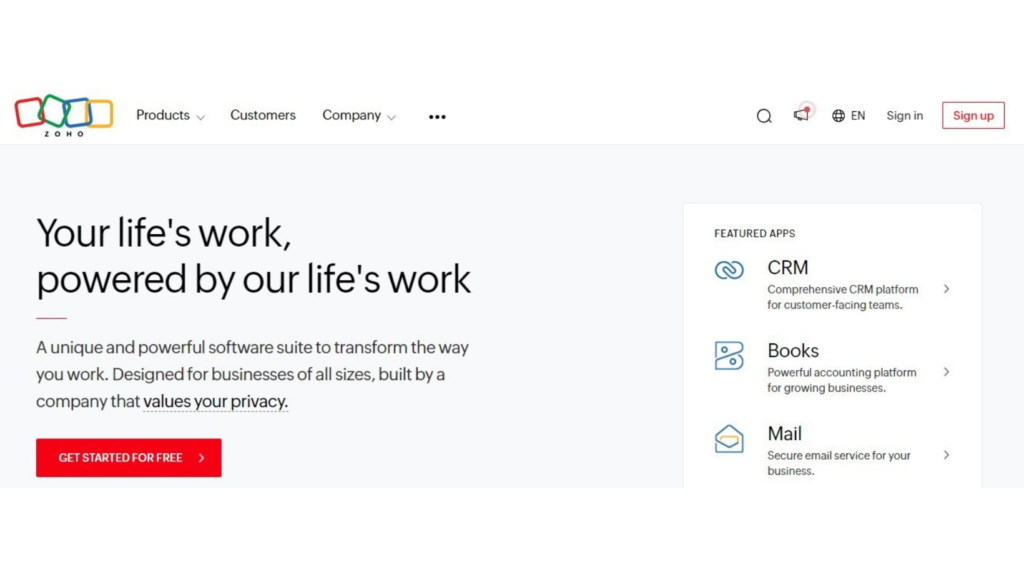
Zoho CRM is a customer relationship management software designed to help businesses manage their sales, marketing, and customer support activities in a single platform. It is particularly popular among small and medium-sized businesses due to its affordability and comprehensive feature set.
Key Features:
- Lead management
- Workflow automation
- Analytics and reporting
- AI-powered assistant (Zia)
Pros:
- Affordable Pricing: Zoho CRM offers a variety of pricing plans, making it accessible to businesses of all sizes.
- Highly Customizable: The platform allows extensive customization to suit your specific business needs, including custom fields, modules, and workflows.
- Wide Range of Features: Zoho CRM offers a comprehensive suite of tools, including automation, analytics, and AI-driven insights.
- Scalable: Zoho CRM can grow with your business, offering advanced features as you need them.
Cons:
- Complex for Beginners: The extensive features and customization options can be overwhelming for users who are new to CRM software.
- Customer Support: Some users report that Zoho’s customer support can be slow or less responsive compared to competitors.
- Integration Issues: While Zoho CRM integrates with many apps, some users have experienced challenges with third-party integrations.
Example:
A small retail business uses Zoho CRM to manage customer interactions, automate follow-up emails, and track sales metrics. They customize the CRM to fit their specific sales process and use AI tools to gain insights into customer behavior.
Pricing:
- Free Plan: Available for up to 3 users, with basic CRM functionalities.
- Paid Plans: Start at $14/month/user, with more advanced features available in higher-tier plans.
Salesforce Essentials
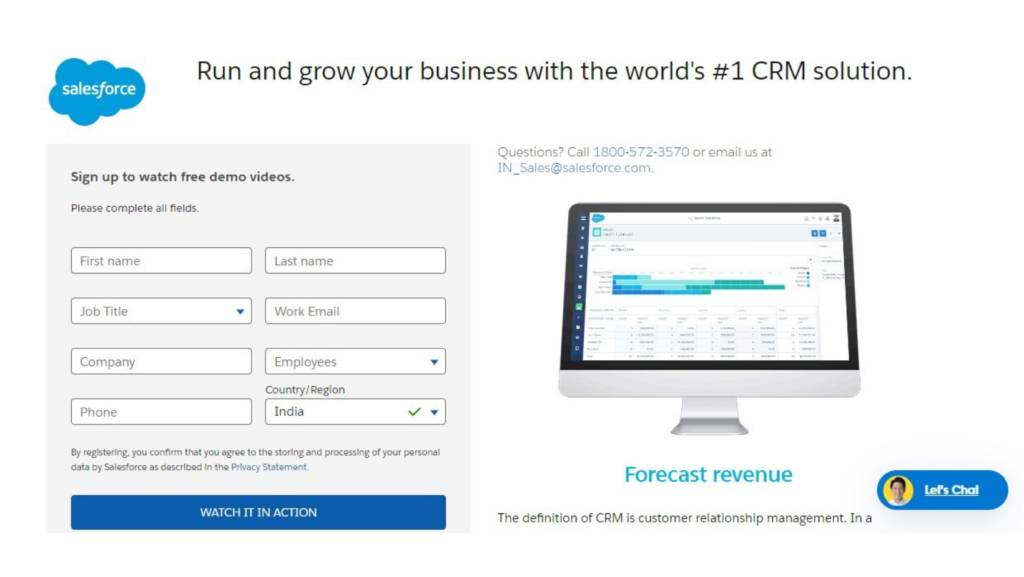
Salesforce Essentials is a customer relationship management (CRM) solution tailored for small businesses, offering the core functionalities of Salesforce’s larger CRM systems but simplified and made more affordable for smaller teams. It helps businesses manage customer relationships, streamline processes, and improve overall efficiency.
Key Features:
- Contact and account management
- Lead and opportunity tracking
- Sales tracking and automation
- Customer support tools (including case management)
- AI-powered insights (Einstein Analytics)
Pros:
- Scalable: Salesforce Essentials is designed to grow with your business, offering a wide range of features and add-ons as your needs expand.
- Extensive App Marketplace: Access to the Salesforce AppExchange allows for easy integration with a vast array of third-party applications.
- AI-Driven Insights: The Einstein AI feature provides smart recommendations and insights to help improve sales and customer service.
Cons:
- Steep Learning Curve: Salesforce Essentials can be complex to set up and use, especially for small businesses without dedicated IT support.
- Costly as You Scale: While the Essentials plan is affordable, costs can add up quickly as you need more advanced features or additional users.
- Limited Customization in Essentials: Some customization options are restricted in the Essentials plan compared to higher-tier Salesforce plans.
Example:
A small tech startup uses Salesforce Essentials to manage their growing customer base, track sales leads, and provide customer support. They benefit from the AI-driven insights to optimize their sales process and improve customer satisfaction.
Pricing:
Essentials Plan: Starts at $25/month/user, which includes all core CRM features for up to 10 users.
Freshsales
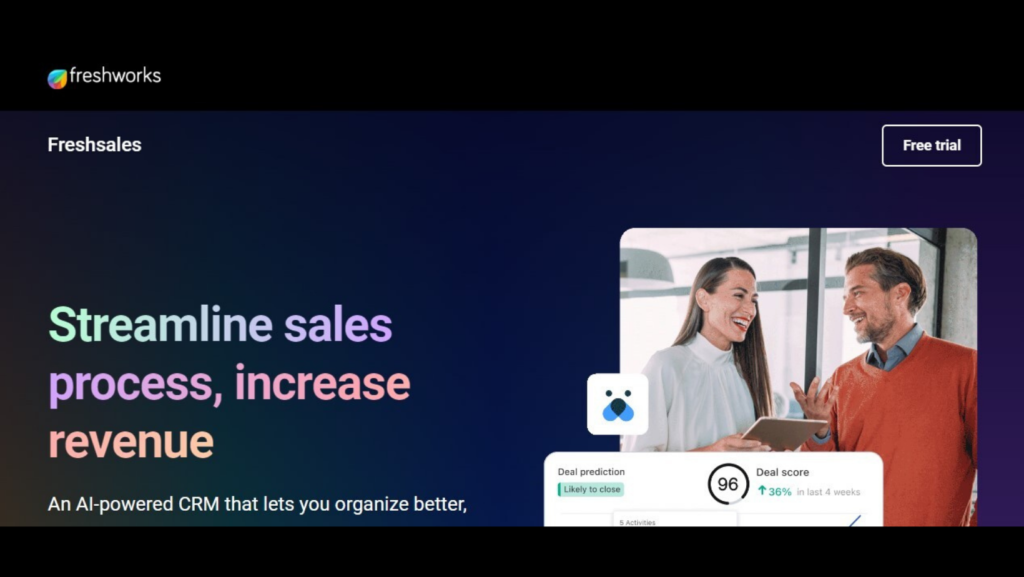
Fresh sales are customer relationship management (CRM) software developed by Fresh works. It is designed to help businesses manage their sales processes, customer interactions, and sales pipeline efficiently.
Key Features:
- AI-powered lead scoring (Freddy AI)
- Visual sales pipeline
- Email tracking and management
- Workflow automation
- Built-in phone system with call recording
Pros:
- User-Friendly Interface: Freshsales is known for its clean, intuitive design, making it easy to navigate and use.
- AI-Powered Features: Freddy AI helps prioritize leads, automates tasks, and provides insights to improve sales effectiveness.
- Good Integration with Freshdesk: If you’re using Freshdesk for customer support, Freshsales integrates seamlessly for a unified experience.
Cons:
- Limited Third-Party Integrations: While Freshsales integrates well within the Freshworks ecosystem, its integrations with other third-party apps are more limited compared to some competitors.
- Basic Reporting: The reporting features, though functional, are not as advanced or customizable as those in higher-end CRMs.
- Scalability Concerns: As your business grows, you might find that Freshsales lacks some advanced features offered by larger, more expensive CRM platforms.
Example:
A small sales team in a real estate agency uses Freshsales to manage their leads, track communications, and automate follow-ups. The AI-powered lead scoring helps them focus on high-potential clients, improving their conversion rates.
Pricing:
- Free Plan: Available with basic features.
- Paid Plans: Start at $15/month/user for the Growth plan, with additional features available in higher tiers.
Pipedrive
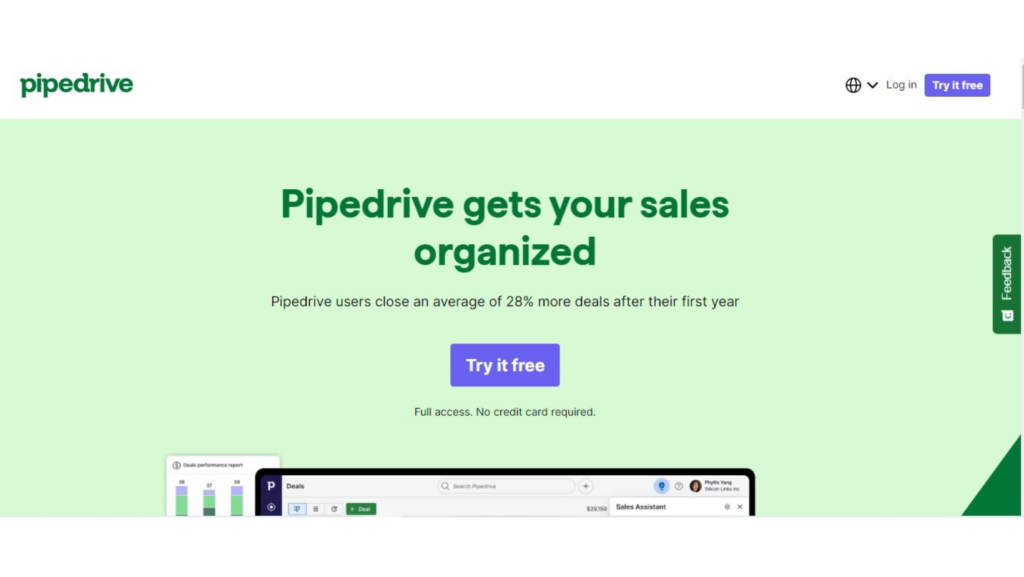
Pipedrive is an excellent choice for small businesses that are heavily focused on sales and need a CRM that helps them stay organized and close deals efficiently. Its visual pipeline and easy-to-use interface make it particularly appealing to sales teams.
Key Features:
- Visual sales pipeline management
- Customizable pipelines and stages
- Email integration and tracking
- Sales automation with triggers and actions
- Activity reminders and task management
Pros:
- Intuitive Interface: Pipedrive’s visual pipeline is highly intuitive, making it easy for users to manage and track deals.
- Sales-Focused: Designed specifically with sales teams in mind, it helps businesses focus on closing deals and managing customer relationships effectively.
- Customization: Offers a high level of customization, allowing you to tailor the CRM to your specific sales process.
Cons:
- Limited Marketing Features: Pipedrive is heavily sales-focused, so it lacks advanced marketing tools compared to more comprehensive CRMs.
- No Free Plan: While there’s a free trial, Pipedrive doesn’t offer a free plan, which might be a downside for very small businesses or startups.
- Basic Reporting: The reporting features, though useful, are not as advanced as those offered by some competitors.
Example:
A small SaaS company uses Pipedrive to manage its sales pipeline, track interactions with potential clients, and automate follow-ups. The sales team benefits from the visual pipeline, which helps them stay on top of every deal.
Pricing:
Plans: Start at $14.90/month/user for the Essential plan, with more advanced features available in higher-tier plans.
Insightly
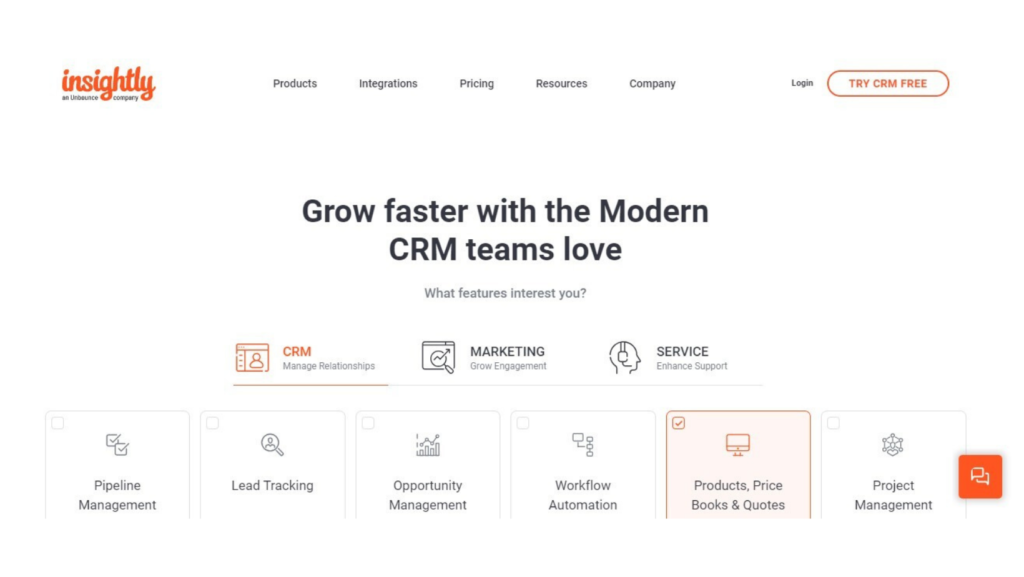
Insightly is a CRM and project management software designed to help businesses build strong customer relationships and manage their sales and projects efficiently.
Key Features:
- Project management and task tracking
- Lead and contact management
- Workflow automation
- Customizable dashboards and reports
- Integration with popular apps (G Suite, Office 365)
Pros:
- Project Management: Insightly combines CRM with project management tools, ideal for businesses that need both.
- Customizable: Offers extensive customization options for fields, layouts, and workflows.
- Integration: Seamlessly integrates with many popular business apps, including email and calendar tools.
Cons:
- Complexity: Can be complex for users who only need basic CRM features.
- Support Issues: Some users report slower response times from customer support.
- Price: Advanced features can be costly compared to other CRMs.
Example:
A consulting firm uses Insightly to manage client projects, track leads, and coordinate tasks among team members.
Pricing:
- Free Plan: Available for up to 2 users.
- Paid Plans: Start at $29/month/user for the Plus plan.
Capsule CRM
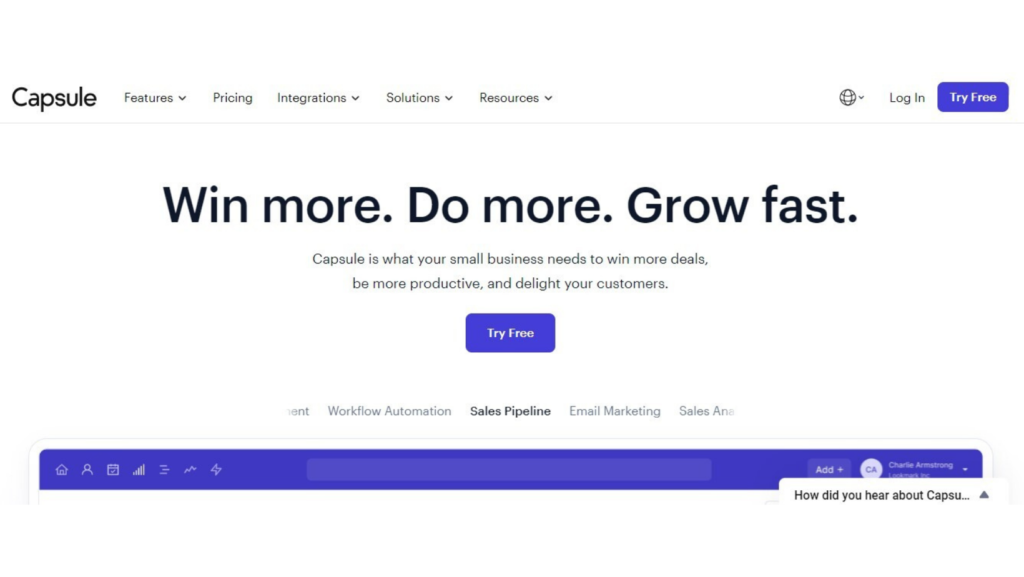
Capsule CRM is software designed to help businesses manage their customer interactions, sales processes, and relationships efficiently.
Key Features:
- Contact management
- Sales pipeline tracking
- Task and calendar management
- Customizable fields and tags
- Integration with popular apps (Gmail, Outlook)
Pros:
- Simple Interface: Capsule CRM is known for its straightforward, user-friendly design.
- Affordability: Offers a competitive pricing structure with a feature-rich free plan.
- Customizable: Allows for customization of fields and tags to fit various business needs.
Cons:
- Limited Advanced Features: May lack some advanced functionalities and integrations found in more robust CRMs.
- Reporting: Basic reporting capabilities compared to some competitors.
Example:
A small service-based business uses Capsule CRM to manage client interactions, track sales, and organize tasks.
Pricing:
- Free Plan: Available for up to 2 users with limited features.
- Paid Plans: Start at $18/month/user.
Keap (formerly Infusionsoft)
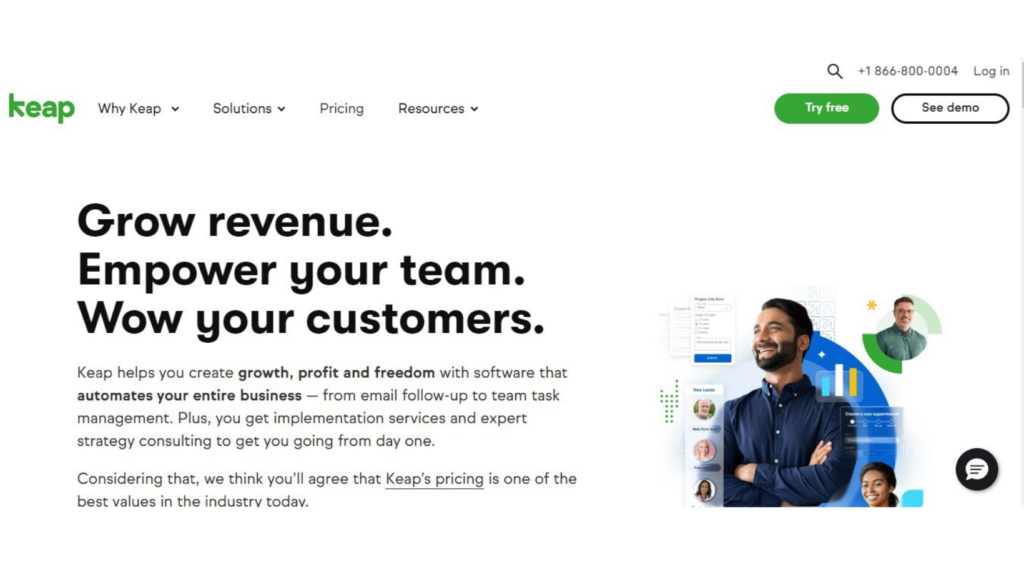
Keap is designed to be an all-in-one solution for small businesses looking to enhance their sales, marketing, and customer relationship management processes through automation and integration.
Key Features:
- CRM and marketing automation
- Sales pipeline management
- Email marketing and campaign automation
- Appointment scheduling
- Invoicing and payment processing
Pros:
- All-in-One Solution: Combines CRM, sales, and marketing automation in one platform.
- Powerful Automation: Strong capabilities for automating marketing tasks and sales processes.
- Integrations: Integrates well with various third-party applications and services.
Cons:
- Complexity: Can be difficult to set up and use, especially for those unfamiliar with advanced CRM systems.
- Cost: Higher pricing compared to many other CRMs, which may not be ideal for very small businesses.
Example:
An e-commerce business uses Keap to manage customer relationships, automate marketing campaigns, and handle invoicing.
Pricing:
Plans: Start at $129/month for the Lite plan, with more advanced features in higher-tier plans.
Nimble
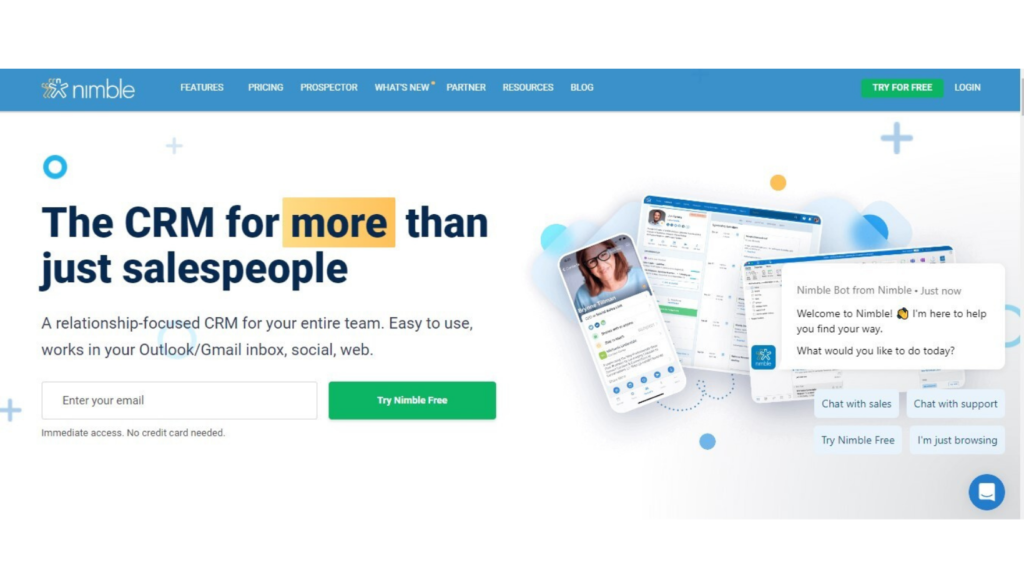
Nimble is a CRM software designed to help businesses manage their customer relationships, streamline sales processes, and enhance productivity. It is particularly known for its social CRM capabilities, integrating social media interactions with traditional CRM features.
Key Features:
- Contact and relationship management
- Social media integration
- Email tracking and communication history
- Task and calendar management
- Smart contact enrichment
Pros:
- Social Media Integration: Excellent at integrating and managing social media interactions.
- User-Friendly: Simple, clean interface that’s easy to navigate.
- Contact Enrichment: Automatically enriches contact details with social media data and other information.
Cons:
- Limited Features: Lacks some advanced CRM features and customization options found in other platforms.
- Integration Limits: Limited to the integrations offered; might not suit all businesses.
Example:
A small PR agency uses Nimble to track client interactions, manage social media contacts, and schedule follow-ups.
Pricing:
Plans: Start at $25/month/user, with additional features available in higher tiers.
Agile CRM
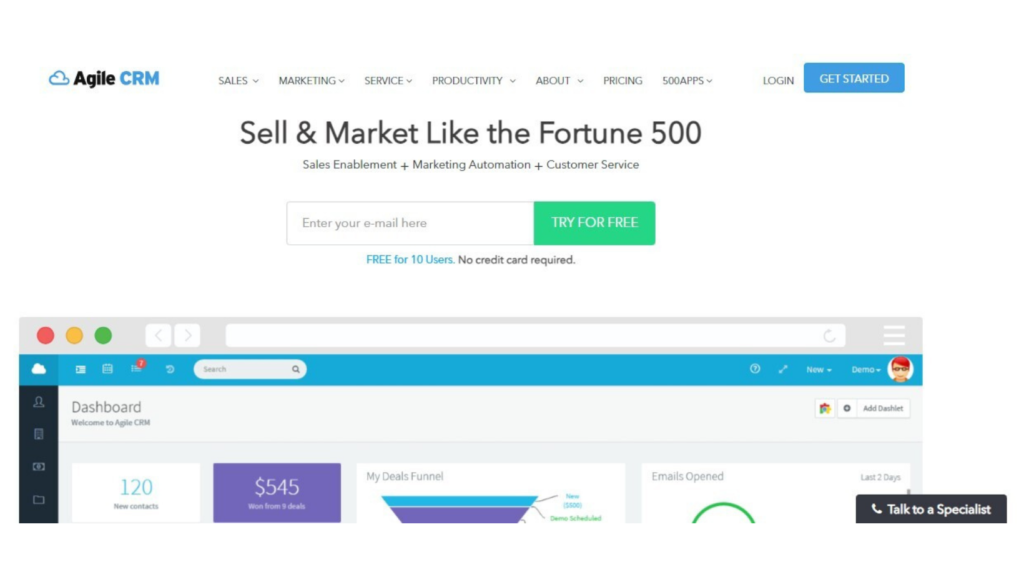
Agile CRM is a customer relationship management (CRM) software designed to help small to medium-sized businesses manage their sales, marketing, and customer service activities efficiently. It offers a range of features to streamline various aspects of customer relationship management.
Key Features:
- Contact management
- Sales automation and pipeline management
- Marketing automation (email campaigns, landing pages)
- Helpdesk and ticketing
- Social media tools
Pros:
- Comprehensive Free Plan: Offers a free plan with a good range of features for small businesses.
- All-in-One CRM: Combines sales, marketing, and customer support tools.
- Affordable Pricing: Paid plans are competitively priced, providing good value.
Cons:
- Interface Issues: Some users find the interface to be less intuitive compared to other CRMs.
- Basic Reporting: Reporting features are functional but not as advanced as those in higher-end CRMs.
Example:
A small tech startup uses Agile CRM to manage customer relationships, automate sales processes, and handle support tickets.
Pricing:
- Free Plan: Available with basic features for up to 10 users.
- Paid Plans: Start at $9.99/month/user.
DM Valid's Global B2B CRM Database for Your Marketing Needs:
In addition to the comprehensive CRM software options we’ve covered, DM Valid offers a robust global B2B database to support your marketing and sales efforts. Our meticulously curated database includes contact information for decision-makers across a wide range of industries, from C-suite executives to marketing and sales professionals.
Whether you’re looking to expand your reach internationally or dive deeper into specific sectors, our global B2B CRM database can help you connect with the right prospects. We pride ourselves on the quality and accuracy of our data, ensuring your marketing campaigns reach the right inboxes and deliver maximum impact.
Unlock the power of targeted outreach and elevate your CRM strategy with DM Valid’s global B2B database. Contact us today to learn more about how our data solutions can drive your business forward.
Conclusion:
Choosing the right CRM software can really boost your small business in 2024. Each CRM on our list offers unique features to help you manage customer relationships, sales, and marketing effectively.
Content Writer at DM Valid
Asifa Khanum is a Content Specialist at DM Valid. I fulfilled roles in marketing that shaped her interest in finding innovative solutions to modern-day problems.
